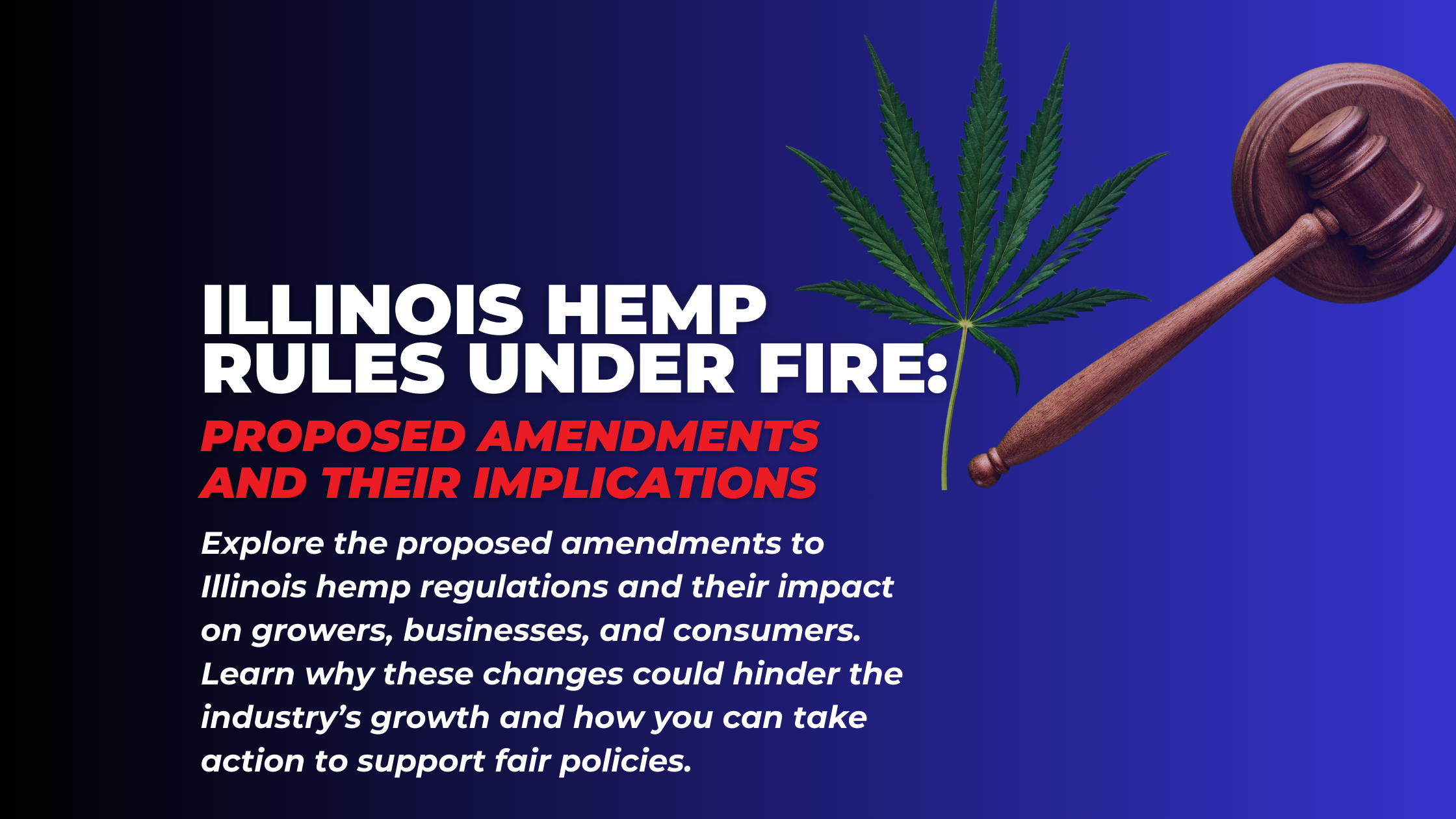
Illinois Hemp Rules Under Fire: Proposed Amendments and Their Implications
llinois’ thriving hemp industry could soon face significant hurdles. The Illinois Department of Agriculture has proposed amendments to the state’s hemp program rules that, if enacted, could create confusion, unfair burdens for growers, and unintended consequences for consumers. These proposed changes are concerning, and it is up to us—stakeholders, advocates, and residents—to take action to ensure the future of hemp in Illinois.
What Are the Proposed Amendments?
The proposed rules bring two major changes to Illinois' hemp regulations that raise red flags within the industry:
- Reclassification of Untested Hemp as Cannabis
Under the proposed amendments, all hemp that has not been tested—including unharvested crops—would be deemed cannabis and thereby classified as illegal. This provision shifts the burden of proof onto hemp growers, requiring them to demonstrate that untested hemp meets the legal definition of industrial hemp. This approach not only undermines the legitimacy of the hemp industry but also sets a troubling precedent for arbitrary classifications.
- License Requirements for Transporting Hemp Products
Business operators, processors, and even consumers would be required to obtain a license to transport hemp products, including processed items. Essentially, this rule creates unnecessary bureaucratic hurdles for those involved in every stage of the hemp supply chain. Worse still, it would make it practically illegal for consumers to purchase and transport hemp-derived goods without a license—a regulatory overreach with serious implications for accessibility.
The Impact on the Hemp Industry and Consumers
Burdening Hemp Growers
Requiring growers to prove that untested hemp is legal places an unfair onus on producers while adding unnecessary complexity. Illinois hemp farmers already face rigorous compliance requirements when producing this versatile and environmentally friendly crop. Adding this reclassification undermines their ability to focus on cultivation and innovation, forcing them to divert resources toward additional testing and legal safeguards.
Restricting Consumer Access
If licenses are required to transport hemp, it could further isolate Illinois consumers and small business owners by making it harder to access and sell hemp-derived products like CBD oils, textiles, and health supplements. This would discourage consumers from participating in the market altogether, reducing demand and further stifling economic growth.
Unintended Ripple Effects
The poorly drafted language of the proposed amendments leaves room for interpretation, setting the stage for confusion and legal disputes. It could deter new hemp producers from entering the Illinois market, devastating the industry’s momentum and potentially forcing existing businesses to relocate to more favorable states.
The State of Affairs and the Way Forward
A public hearing on these amendments is scheduled for November 12, giving key stakeholders in the industry an opportunity to raise their concerns. While there is some optimism that these rules might ultimately be rejected, it is imperative for advocates of fair hemp legislation to make their voices heard now.
The Illinois hemp industry plays a crucial role—not just in agriculture, but also in advancing sustainable practices and generating economic opportunities. These proposed changes would roll back progress and harm countless growers, small businesses, and consumers.
Call to Action
If you care about the future of Illinois’ hemp industry, now is the time to get involved. Use our Policy Map to reach out to members of the joint committee and urge them to oppose these harmful amendments. Whether you’re a hemp grower, cannabis enthusiast, or Illinois resident who values fair regulations, your voice matters in this fight for progress and clarity.
Collective Action is Key
The hemp industry in Illinois represents more than just a business sector—it’s a movement toward sustainable innovation and an eco-conscious future. These proposed rules threaten to derail this progress by creating barriers that hinder growth and accessibility for both producers and consumers.
Every regulatory proposal impacts the future of the market. Staying informed and taking collective action are the best ways to protect an industry that stands at the crossroads of agriculture, sustainability, and economic opportunity. Together, we can ensure that Illinois remains a welcoming state for hemp innovation and collaboration.
Make your voice heard by taking action today. The future of Illinois hemp depends on it.



